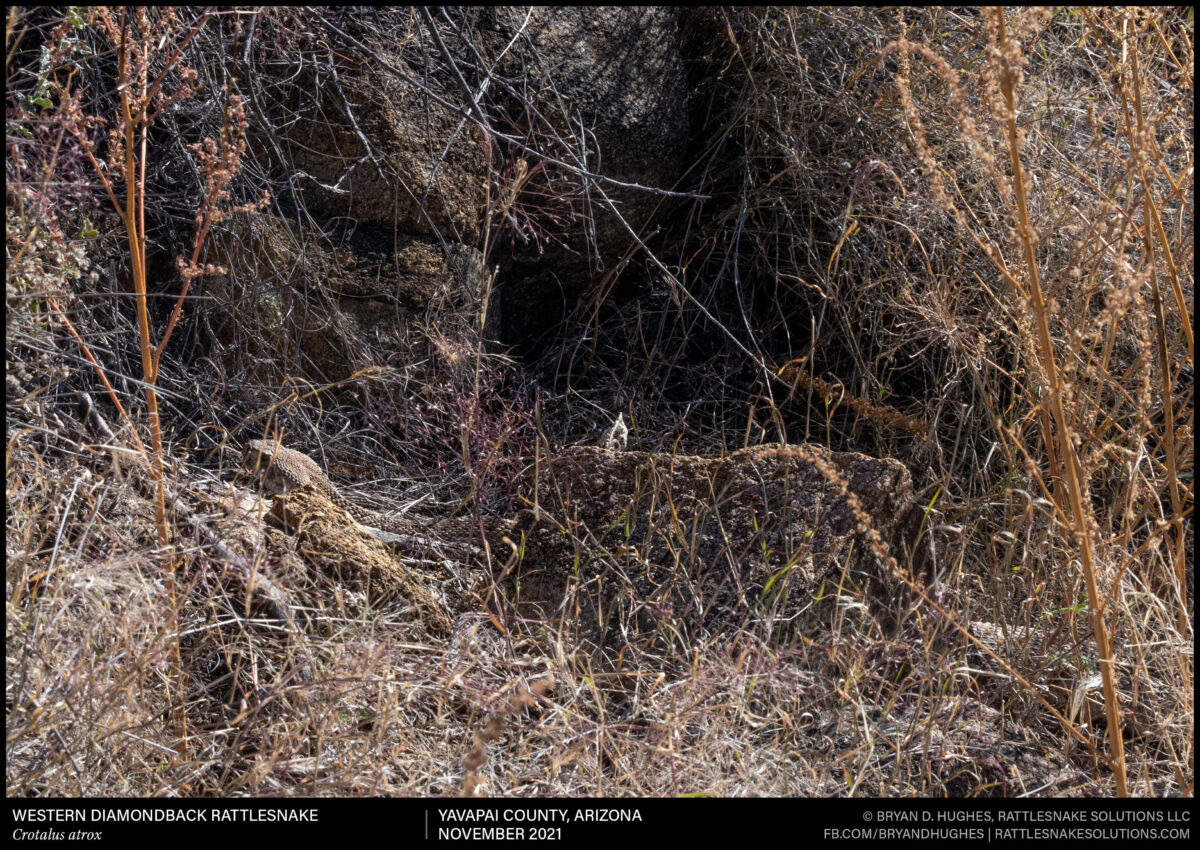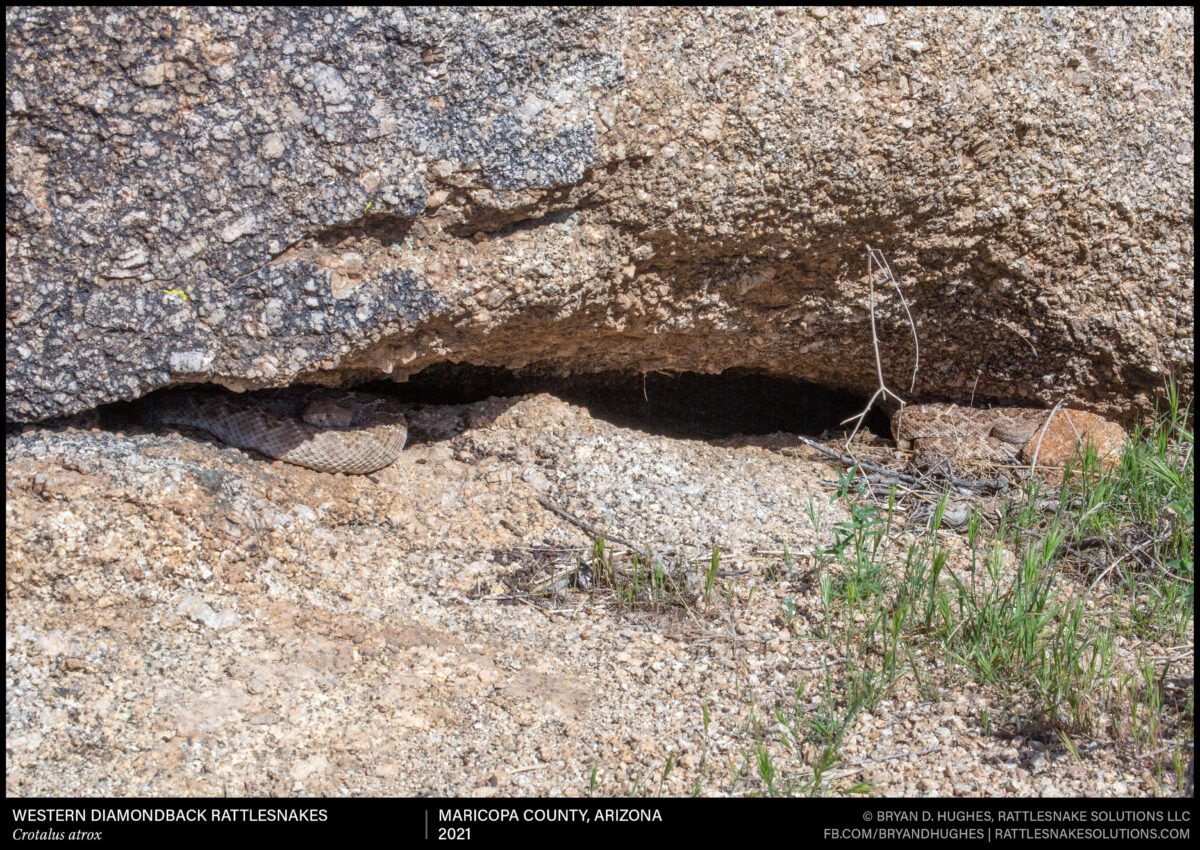A large male Western Diamondback Rattlesnake cruising through dense vegetation, on the lookout for others that may be near. At this higher elevation den in the late fall, the females are already tucked into rock crevices and caves. All that remain on the surface are the largest males, patrolling for rivals, and getting into the occasional fight. This one finished its loop and settled back into the sunny spot it prefers for awhile, before doing it all again about an hour later. Why wait until spring to fight for the good spot, when you can do it in the fall?



